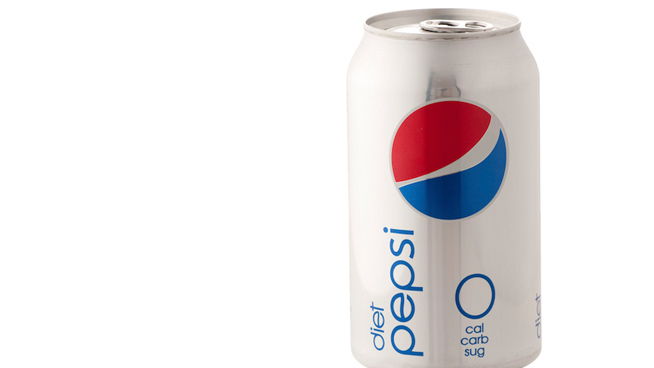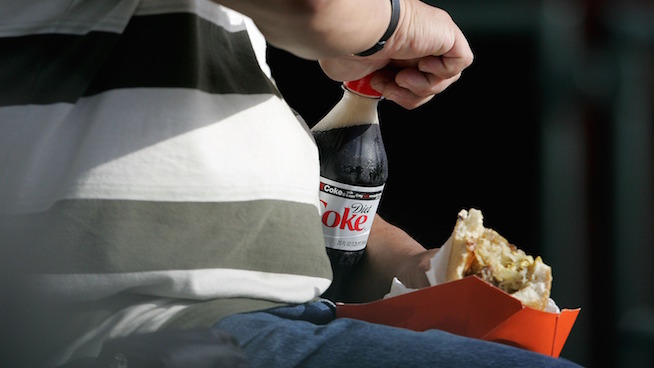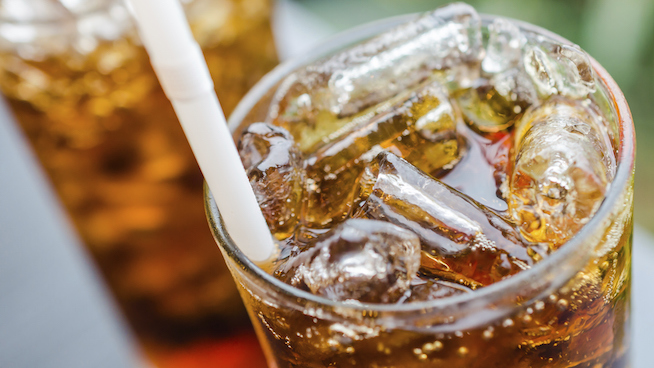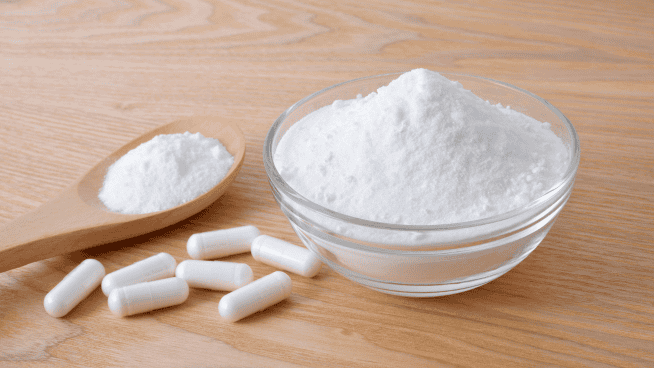How Can Zero-Calorie Diet Soda Be Bad for You?
![]()
Nutrition facts are supposed to be reliable. After all, they’re regulated by the government and they’re the most convenient way to get the low-down on what you put into your body. If you’re looking to monitor your intake of calories, carbs, sugar or fat, you’re probably checking the nutrition facts of everything you eat.
But labels don’t always tell the full story. Perhaps nothing illustrates that fact better than one of the most popular beverages in America—diet soda. The nutrition facts of many diet sodas seem amazingly innocuous for such a tasty drink. For example, Diet Coke has zero calories, zero grams of fat, zero grams of sugar and no carbs. Nowadays, almost every diet soda on the market has no calories, sugar, fat or carbs. Compared to regular soda, which is packed with calories, carbs and sugar, diet soda seems like a nutritional angel. Heck, it even has the word diet right in the name.
However, ask almost any nutritionist about their thoughts on diet soda and they’ll tell you those zeroes on the label don’t necessarily mean its harmless. For example, a recent study linked diet soda to obesity. How can a drink that has almost no nutrients in it, both good and bad, have such an effect on our bodies? STACK talked to Ryan Andrews, nutrition coach at Precision Nutrition, and Leslie Bonci, director of sports nutrition at the University of Pittsburgh Medical Center, to find out how diet soda can wreak havoc on your health.
Zero Calories, Full Taste

How does diet soda manage to taste so good despite being devoid of calories, sugar and carbs? It’s not magic—it’s artificial sweetener. Artificial sweeteners go by many names, and they give diet soda the taste you love.
“Most diet sodas are sweetened with aspartame,” Andrews says. “Others include stevia, sucralose, erythritol and acesulfame potassium. Some sodas contain a mix of article sweeteners.”
Those artificial sweeteners are the key to diet soda’s squeaky clean nutrition facts. Regular soda has real sugar, and with real sugar comes calories and carbohydrates. A single gram of sugar contains roughly one gram of carbohydrates and four calories. By avoiding sugar, diet soda avoids all of those calories and carbs that come with it.
For example, a can of regular Coca-Cola has 140 calories and 39 grams of carbs—almost all of which are a by-product of its 39 grams of sugar. “Diet soda can have no calories, carbs or sugar because it replaces sugar with artificial sweeteners. Artificial sweeteners are much sweeter than sugar. So it’s possible to use a very small amount for the sweet taste and have a very low level of calories,” Andrews says. Indeed, some article sweeteners are actually 600 times as sweet as sugar.
‘No Calories’ Doesn’t Mean No Worries

But what makes artificial sweeteners bad for you? If they don’t contribute a high number of calories, carbs, sugar or fat to your beverage, how can they negatively affect your body?
“There are a lot of theories on this,” Andrews says. “For one, artificial sweeteners might alter our ability to actually process sugar in the body.” With their sweet taste, artificial sweeteners can trick our brains into thinking we’re ingesting actual sugar when we consume them.
When your body thinks it’s getting sugar, it expects to receive calories.
“The sweet taste of diet soda may be a stimulus for the brain to say, ‘incoming calories, let’s eat,’” Bonci says.
When it doesn’t actually get those calories, your body gets confused. Over time, this behavior could wreak havoc on how your body releases insulin, the hormone that helps turn sugar into energy. If your body has adapted to artificial sweetener consumption, it might not release the proper levels of insulin when you consume actual sugar. This can lead to sugar remaining in the blood stream, which can cause things like diabetes and hyperglycemia.
Furthermore, by tricking your body into thinking it’s going to get calories, artificial sweeteners leave you susceptible to subsequent overeating. “Since the body and brain aren’t actually getting calories or carbs, we might get signals for strong rebound cravings after consuming artificial sweeteners,” Andrews says.
A recent study found diet soda drinkers consume a comparable amount of total calories per day as regular soda drinkers. That means they’re eating more calories from solid food than regular soda drinkers, filling in any caloric deficit they might be creating from their zero-calorie soda consumption. “Less calories in your glass may lead to more on your plate,” Bonci says.
Artificial sweeteners may also change the way foods taste to us. “Our taste buds calibrate to what we’re used to,” Andrews says. “If someone is drinking highly sweetened diet soda each day, then other naturally sweet foods, such as fruit, likely won’t taste as sweet or be appealing. Then they gravitate toward even more highly processed and sugary foods in their diet.”
Studies have shown diet soda drinker’s brains actually look different than non diet soda drinkers. One study found that as a participant’s diet soda consumption increased, an area of their brain known as the “caudate head” diminished in activity. The caudate head plays a role in food motivation and satiety, and helps send the signal that the sweet taste of sugar equals incoming calories. If this part of the brain isn’t active, your body won’t help you naturally regulate your consumption of sugary snacks. Decreased activity in this area has been linked with an increased risk of obesity.
Fizzy Addiction

Many experts agree downing an occasional diet soda won’t do you much harm. “If you’re an otherwise healthy person, and your biggest vice is a diet soda a couple times per week, you probably don’t have much to worry about,” Andrews says.
However, many diet soda drinkers don’t follow that pattern of consumption. Many guzzle diet soda at all hours of the day, almost like it’s an addiction. The most obvious answer to this behavior is diet soda’s caffeine content. Regular consumption of caffeine can lead to a dependence upon it just like substances such as alcohol or cigarettes. But caffeine might not play the only role.
The sweet taste of article sweeteners has shown to be addictive as well. In an animal study, rats were more easily addicted to saccharin, a calorie-free artificial sweetener used in Tab soda, than they were cocaine. Diet soda makes it exceptionally easy to get addicted to that sweet taste, as it’s achieved without the easily noticeable negative side effects of sugar consumption (such as crashes).
Ultimately, a diet soda now and again won’t hurt you. But if you’re downing several a day and think you’re not having a negative impact on your health, you’re mistaken. If you love the fizzy taste, go for a smarter alternative. “Opt for seltzer or soda water, there are some with hints of flavor and they don’t contain artificial sweeteners,” Bonci says.
RELATED: 5 Drinks You Had No Idea Were As Bad As (or Worse Than) Soda
RECOMMENDED FOR YOU
MOST POPULAR
How Can Zero-Calorie Diet Soda Be Bad for You?
![]()
Nutrition facts are supposed to be reliable. After all, they’re regulated by the government and they’re the most convenient way to get the low-down on what you put into your body. If you’re looking to monitor your intake of calories, carbs, sugar or fat, you’re probably checking the nutrition facts of everything you eat.
But labels don’t always tell the full story. Perhaps nothing illustrates that fact better than one of the most popular beverages in America—diet soda. The nutrition facts of many diet sodas seem amazingly innocuous for such a tasty drink. For example, Diet Coke has zero calories, zero grams of fat, zero grams of sugar and no carbs. Nowadays, almost every diet soda on the market has no calories, sugar, fat or carbs. Compared to regular soda, which is packed with calories, carbs and sugar, diet soda seems like a nutritional angel. Heck, it even has the word diet right in the name.
However, ask almost any nutritionist about their thoughts on diet soda and they’ll tell you those zeroes on the label don’t necessarily mean its harmless. For example, a recent study linked diet soda to obesity. How can a drink that has almost no nutrients in it, both good and bad, have such an effect on our bodies? STACK talked to Ryan Andrews, nutrition coach at Precision Nutrition, and Leslie Bonci, director of sports nutrition at the University of Pittsburgh Medical Center, to find out how diet soda can wreak havoc on your health.
Zero Calories, Full Taste

How does diet soda manage to taste so good despite being devoid of calories, sugar and carbs? It’s not magic—it’s artificial sweetener. Artificial sweeteners go by many names, and they give diet soda the taste you love.
“Most diet sodas are sweetened with aspartame,” Andrews says. “Others include stevia, sucralose, erythritol and acesulfame potassium. Some sodas contain a mix of article sweeteners.”
Those artificial sweeteners are the key to diet soda’s squeaky clean nutrition facts. Regular soda has real sugar, and with real sugar comes calories and carbohydrates. A single gram of sugar contains roughly one gram of carbohydrates and four calories. By avoiding sugar, diet soda avoids all of those calories and carbs that come with it.
For example, a can of regular Coca-Cola has 140 calories and 39 grams of carbs—almost all of which are a by-product of its 39 grams of sugar. “Diet soda can have no calories, carbs or sugar because it replaces sugar with artificial sweeteners. Artificial sweeteners are much sweeter than sugar. So it’s possible to use a very small amount for the sweet taste and have a very low level of calories,” Andrews says. Indeed, some article sweeteners are actually 600 times as sweet as sugar.
‘No Calories’ Doesn’t Mean No Worries

But what makes artificial sweeteners bad for you? If they don’t contribute a high number of calories, carbs, sugar or fat to your beverage, how can they negatively affect your body?
“There are a lot of theories on this,” Andrews says. “For one, artificial sweeteners might alter our ability to actually process sugar in the body.” With their sweet taste, artificial sweeteners can trick our brains into thinking we’re ingesting actual sugar when we consume them.
When your body thinks it’s getting sugar, it expects to receive calories.
“The sweet taste of diet soda may be a stimulus for the brain to say, ‘incoming calories, let’s eat,’” Bonci says.
When it doesn’t actually get those calories, your body gets confused. Over time, this behavior could wreak havoc on how your body releases insulin, the hormone that helps turn sugar into energy. If your body has adapted to artificial sweetener consumption, it might not release the proper levels of insulin when you consume actual sugar. This can lead to sugar remaining in the blood stream, which can cause things like diabetes and hyperglycemia.
Furthermore, by tricking your body into thinking it’s going to get calories, artificial sweeteners leave you susceptible to subsequent overeating. “Since the body and brain aren’t actually getting calories or carbs, we might get signals for strong rebound cravings after consuming artificial sweeteners,” Andrews says.
A recent study found diet soda drinkers consume a comparable amount of total calories per day as regular soda drinkers. That means they’re eating more calories from solid food than regular soda drinkers, filling in any caloric deficit they might be creating from their zero-calorie soda consumption. “Less calories in your glass may lead to more on your plate,” Bonci says.
Artificial sweeteners may also change the way foods taste to us. “Our taste buds calibrate to what we’re used to,” Andrews says. “If someone is drinking highly sweetened diet soda each day, then other naturally sweet foods, such as fruit, likely won’t taste as sweet or be appealing. Then they gravitate toward even more highly processed and sugary foods in their diet.”
Studies have shown diet soda drinker’s brains actually look different than non diet soda drinkers. One study found that as a participant’s diet soda consumption increased, an area of their brain known as the “caudate head” diminished in activity. The caudate head plays a role in food motivation and satiety, and helps send the signal that the sweet taste of sugar equals incoming calories. If this part of the brain isn’t active, your body won’t help you naturally regulate your consumption of sugary snacks. Decreased activity in this area has been linked with an increased risk of obesity.
Fizzy Addiction

Many experts agree downing an occasional diet soda won’t do you much harm. “If you’re an otherwise healthy person, and your biggest vice is a diet soda a couple times per week, you probably don’t have much to worry about,” Andrews says.
However, many diet soda drinkers don’t follow that pattern of consumption. Many guzzle diet soda at all hours of the day, almost like it’s an addiction. The most obvious answer to this behavior is diet soda’s caffeine content. Regular consumption of caffeine can lead to a dependence upon it just like substances such as alcohol or cigarettes. But caffeine might not play the only role.
The sweet taste of article sweeteners has shown to be addictive as well. In an animal study, rats were more easily addicted to saccharin, a calorie-free artificial sweetener used in Tab soda, than they were cocaine. Diet soda makes it exceptionally easy to get addicted to that sweet taste, as it’s achieved without the easily noticeable negative side effects of sugar consumption (such as crashes).
Ultimately, a diet soda now and again won’t hurt you. But if you’re downing several a day and think you’re not having a negative impact on your health, you’re mistaken. If you love the fizzy taste, go for a smarter alternative. “Opt for seltzer or soda water, there are some with hints of flavor and they don’t contain artificial sweeteners,” Bonci says.
RELATED: 5 Drinks You Had No Idea Were As Bad As (or Worse Than) Soda










